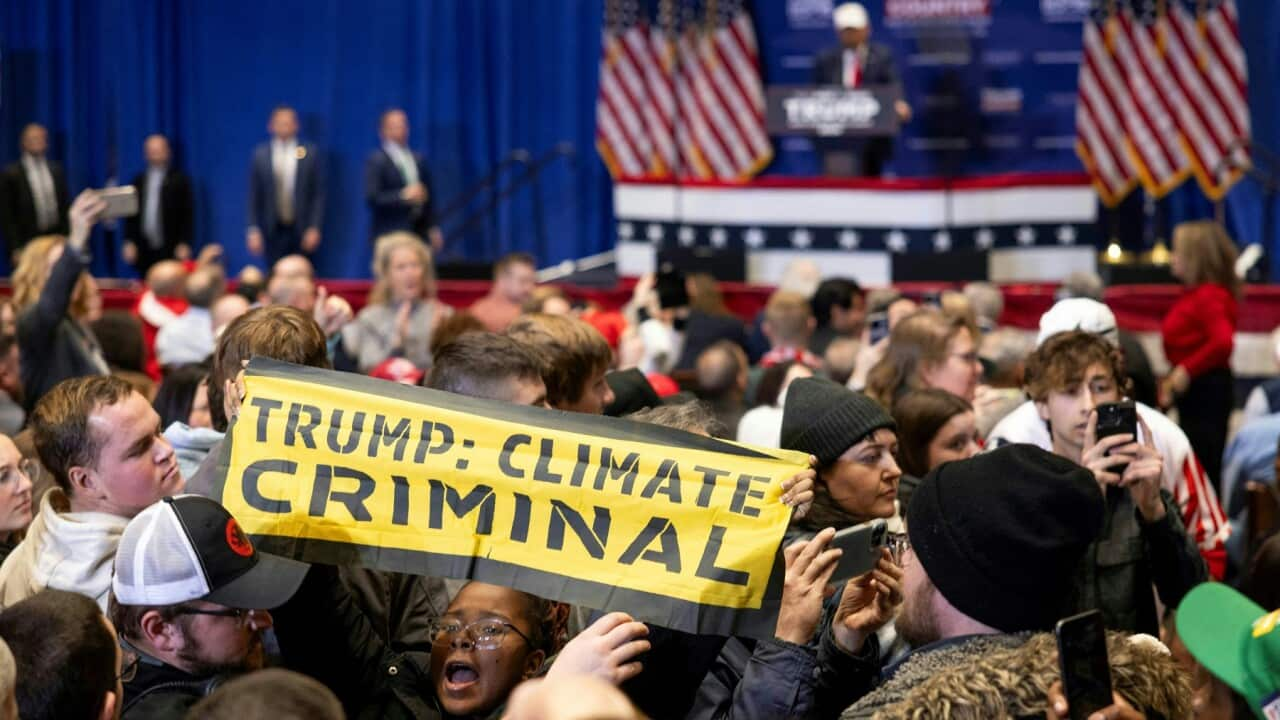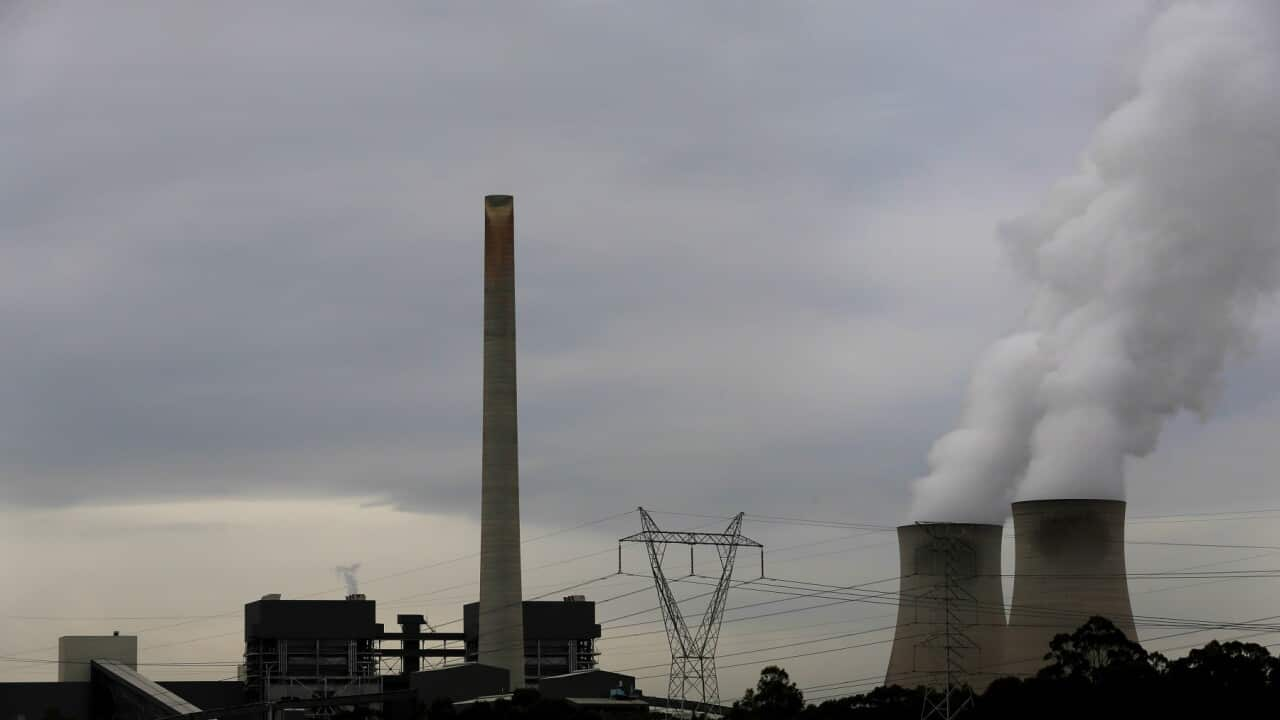TRANSCRIPT
"We overcame obstacles that nobody thought possible and it is now clear that we've achieved the most incredible political thing. Look what happened. Is this crazy?”
The re-election of Donald Trump as President of the United States is sparking concerns among environmentalists and climate scientists.
The former President, now President-elect, has called climate change an expensive hoax, labelled climate scientists "prophets of doom", and is vocal about plans to roll back clean energy policy.
In the first six months of his first term in office, Donald Trump announced plans to withdraw from the Paris Agreement - a 2015 agreement signed by almost every country, pledging a reduction in emissions.
"The United States will withdraw from the Paris climate accord, thank you, thank you, but begin negotiations to re-enter either the Paris accord or entirely new transaction on terms that are fair to the United States, its businesses, its workers, its people, its taxpayers. So we're getting out, but we will start to negotiate and we will see if we can make a deal that's fair and if we can, that's great. And if we can't, that's fine."
While Trump's climate agenda in his second term is yet to formally announced, it is expected to be vastly different from the administration of President Joe Biden.
"Folks, the evidence is clear. Climate change poses an existential threat to our lives, to our economy. And the threat is here. It's not going to get any better. The question: Can it get worse? We can stop it from getting worse."
As the United Nations Climate Summit COP29 commences in Azerbaijan this week, experts say any agreements made by the Biden administration will not be binding on the Trump administration.
Climate scientists and activists say a Trump presidency will be a major setback for US efforts to tackle climate change.
Young people in particular, fear that the rhetoric surrounding climate change and the facts behind it, are enough to slow down the progress being made.
Kayla Le is a 22-year-old climate activist and student from Arizona, she says there isn't time to continue justifying the facts in the middle of a climate crisis.
"Objectively, under Trump, he's kind of facilitated a bunch of misinformation and kind of made people very scared, not even scared but just very doubtful of what facts and researchers who are dedicating their entire lives to really showing us what is happening on a larger scale or like a micro-scale."
While many are fearful that Trump will undo important progress, some experts say while his power is broad, he can't undo everything.
They say that with investment in clean energy overtaking fossil fuels, the global trend can continue without American leadership.
Helen Clarkson is the CEO of Climate Group.
She says things are likely to be different this time.
"As we go into COP, and what's making COP even more important this year, is in the past when the US has pulled back, we've seen other countries pull back, but there's a lot of momentum now in the climate system. The energy transition is underway, and there's other things that are driving it. Market demand, prices, renewable prices coming down, battery storage going up. So, there's a lot of momentum in the system, and I think what we don't know is how other countries are going to respond. So, the big thing is going to happen at COP when we start to see other countries coming out. They've got time to think what they're going to do, and we'll see and get a temperature take at that point."
Linda Kalcher is a climate policy analyst at Strategic Perspective.
She says the rhetoric and climate denialism from Trump is likely to get stronger pushback this time around.
"We look back to when Trump was last elected, we had the COP in Marrakesh right after. We saw a lot of uncertainty and concerns for the first hours, and that's natural. We see that again now. But afterwards, you saw countries coming together again and really being keen to negotiate the outcomes. So even this year, now that we have the result already, I expect a lot of leaders to actually step up and say and feel the need to clearly distance themselves from the climate denialism that he talks about and projects."
The United States is one of the largest carbon dioxide emitters in the world, making up for around 13.5 per cent of global emissions.
As of the end of August, donation filings showed Trump received a record amount of over $21 million for his campaign from the oil and gas industry.
The president-elect has in turn promised to, as he put it, "drill, baby, drill", upscale fracking and harvest more and more natural resources.
During his first term, Donald Trump told reporters the US has the cleanest air and water in the world.
"You know, we have the cleanest air in the world in the United States, and it's gotten better since I'm President, we have the cleanest water, it's crystal clean, and I always say I want crystal, clean water, and air so I haven't heard his comments but we do have, we're setting records, environmentally."
Rob Jackson, a climate scientist at Stanford University, fears a Trump administration will mean the defunding of federal environmental agencies.
“As a climate scientist, the first administration was, I think it’s fair to use the term disastrous, at least in some ways. We withdrew from the Paris Accord as a nation, the only country to do that. The administration reversed dozens of rules that made our air and water cleaner, rolled back safeguards restricting mercury emissions from power plants. So I'm most worried about our air and water quality in the near term and I'm worried about agencies that track the health of the planet for the atmosphere and the oceans like NOAA, in particular, the National Oceanic and Atmospheric Administration.”
Despite this, other experts argue that a Trump Presidency will mean the climate movement in the United States may become more mobilised.
During his first administration, the movement developed policy proposals for a Green New Deal, some of which were later implemented under Joe Biden.
It's also being argued that while policy at a federal level is important for climate action, local and state governments will still push ahead with their own climate agendas.
California is the world's fifth largest economy and plans to achieve carbon neutrality by 2045.
Policy analyst at Carbon Direct, Zara Ahmed, says climate action is not over in the US.
"The president has broad power to repeal through the regulatory process proposed and existing regulations, including for things like power plant emissions of methane or vehicle emissions as well. However, at the same time, consumers can choose to purchase a low emissions vehicle. States can choose to enact their own regulations about emissions, as we see California do. So again, I think while the federal government is an incredibly powerful tool, it doesn't mean that we're at the end of climate action in the US."













